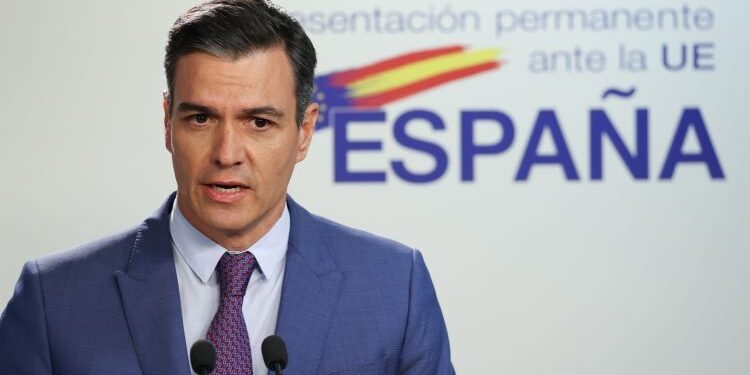Ángel Collado
Pedro Sánchez reacts to the PSOE’s defeat in Andalusia and his personal setback in the polls with an improvised decree of economic patches in the face of the crisis, another legislative offensive to control Justice and the recovery of his more left-wing discourse.
The president of the government, in his headlong rush to run out the legislature without changing partners or script, has once again rejected the state pacts offered by the rising opposition, the Popular Party, and has shied away from pending economic reforms.
The PP’s absolute majority and the worst results in the history of the PSOE in Spain’s most populated region (Andalusia) and with an electorate that considered itself more left-wing, has only moved the chief executive to reaffirm his shared political project with the extreme left of Podemos and the Catalan and Basque pro-independence supporters.
Sánchez’s practical response to the change of cycle foreshadowed by the Andalusian elections and the polls boils down to a new decree of anti-inflation measures. They are so varied that they range from a reduction in VAT on electricity from 10 to 5 per cent, copied from the PP and so far discarded, to subsidies devised by Podemos, reduced by 50 per cent in amount and recipients, such as the direct aid voucher for families.
Thee improvisation of the measurs is evidenced by the announcement that the main way to compensate subsidies with increased revenue, a new tax on extraordinary profits of companies in the energy sector, remains to be specified in a future bill that would come into force next year. Sánchez himself explained that his cabinet is studying what other European countries have already done in this area, especially Italy, to decide how to do it.
The president of the government is putting new patches in place to alleviate an escalation in inflation (8.7 percent in May) that he presents as the result of the war in Ukraine, despite the fact that when Putin unleashed the invasion it had already reached 7.6 percent after closing last year at 6.5 percent.
In the face of the crisis, he continues not to consider lowering taxes for citizens and companies, in addition to ruling out any austerity measures to curb the public deficit. Sánchez has been committed to spending and increasing the weight of the state in the economy since he came to power in 2018 with the support of the extreme left and the separatist parties, and he remains in this line, even though Spain is already at a debt level of 120 per cent of its Gross Domestic Product.
The government has confirmed after the setback in Andalusia its obsession with controlling the judiciary, which it is now extending to the Constitutional Court, the supreme arbitration body in Spanish democracy. The socialist leader is seeking a parliamentary majority to change the law by which he himself removed the General Council of the Judiciary’s powers of appointment. The final move consists of guaranteeing himself a “progressive” majority in the Constitutional Court in the renewal of the third of its members pending through the two to be proposed by the Executive and the other two from the CGPJ.
The Constitutional Court’s rulings against the social-communist government’s decisions so far this term have usually included the support of members considered to be of ‘progressive’ extraction, Sánchez does not want any more impediments to his plans in the Court of Guarantees and will look for magistrates close to his own interests.
But the biggest novelty of Sanchez’s response to the possible change of political cycle lies in the recovery of the discourse and expressions of the times of the internal struggle in the PSOE, when the current secretary general confronted the party’s old guard as a more left-wing alternative. Sánchez once again speaks, in terms also coined by Pablo Iglesias in Podemos, of obscure economic interests that are trying to break him.
The head of the PSOE alludes to “the media terminals” (another of Iglesias’ obsessions) of these powerful sectors that go against his personal image and that of his administration. According to the opposition, this is a complaint that contrasts with the government’s iron grip on state radio and television (RTVE) and the loyalty of Spain’s main private media group (PRISA, with El País and the Ser network) to the government’s interests. This is another symptom, that of threatening the messenger, which, according to the PP, confirms that Sánchez is still suffering from the so-called La Moncloa syndrome, distanced from reality, a prisoner of officialdom and surrounded by sycophants.






